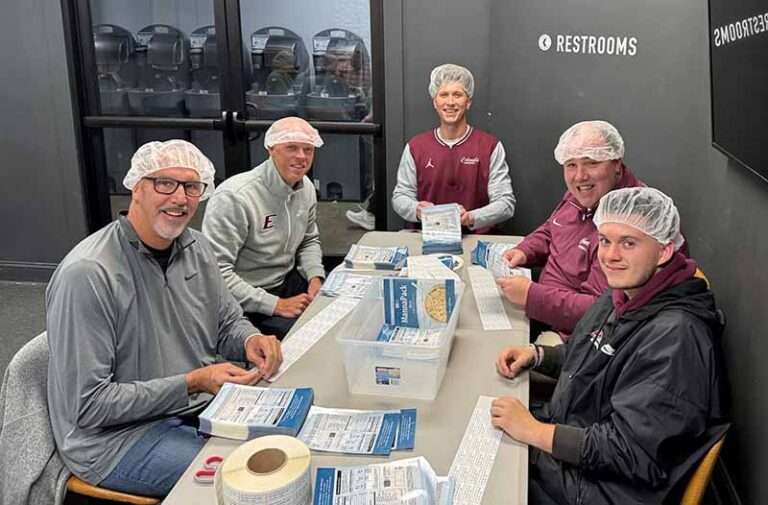Kentucky Health News
The Food and Drug Administration approved a powerful new painkiller Friday over the objections of a Kentucky doctor who co-chairs its advisory committee on such matters, and other physicians.
Dr. Raeford Brown of the University of Kentucky and others argue that sufentanil, 10 times more powerful than fentanyl, “would inevitably be diverted to illicit use and cause more overdose deaths,” reports Lenny Bernstein of The Washington Post.
Brown, a professor of anesthesiology and pediatrics, is the longtime chair of the FDA’s Anesthetic and Analgesic Drug Products Advisory Committee. The panel voted 10-3 on Oct. 12 to support approval of the drug, which was developed with millions of dollars from the Pentagon, which wants an easier-to-use painkiller for the battlefield.
The drug, branded as Dsuvia, is “a tablet version of an opioid marketed for intravenous delivery, but is administered under the tongue using a specially developed, single-dose applicator,” reports Ed Silverman of Stat. That makes it “well-suited for the military and therefore was a priority for the Pentagon, a point that factored heavily into the decision,” according to FDA Commissioner Scott Gottlieb.

“The FDA has made it a high priority to make sure our soldiers have access to treatments that meet the unique needs of the battlefield, including when intravenous administration is not possible for the treatment of acute pain,” Gottlieb wrote in what the Post called “an unusual statement, saying he would seek more authority for the agency to consider whether there are too many similar drugs on the market. That might allow the agency to turn down future applications for new opioid approvals if the drugs are not filling an unmet need.”
Gottlieb’s words did not satisfy Brown and the advocacy group Public Citizen, who said in a statement that AcelRx, the manufacturer, had not proven the pill’s effectiveness or adequately responded to safety concerns. They noted that the FDA did not convene its Drug Safety and Risk Management Advisory Committee to consider the application.
“Clearly, the issue of the safety of the public is not important to the commissioner, despite his attempts to obfuscate and misdirect,” Brown said. “I will continue to hold the agency accountable for their response to the worst public-health problem since the 1918 influenza epidemic.”
Dr. Andrew Kolodny, who heads the Opioid Policy Research Collaborative at Brandeis University and is executive director of Physicians for Responsible Opioid Prescribing, an education and advocacy group, told Stat, “There is absolutely no need for this product. Claiming we need it on the market to help soldiers on the battlefield is ridiculous,” because fentanyl administered under the tongue is available for battlefield use.
Gottlieb said, “There are very tight restrictions being placed on the distribution and use of this product. We’ve learned much from the harmful impact that other oral opioid products can have in the context of the opioid crisis. We’ve applied those hard lessons as part of the steps we’re taking to address safety concerns for Dsuvia.”
The Post reports, “The FDA says that controls on drugs inside medical facilities are tight and the greatest risk of diversion is among medical personnel themselves. A 2016 survey conducted by the federal Substance Abuse and Mental Health Services Administration shows that narcotics are rarely stolen from doctor’s offices, clinics, hospitals or pharmacies. Fewer than 1 percent of people said they acquired opioids that way.”
The rate of overdose deaths among health care workers is relatively high, however, according to an August study by the Centers for Disease Control and Prevention, with 876 succumbing to prescription opioids between 2007 and 2012.
Sufentanil is “commonly used after surgery and in emergency rooms,” the Post notes. The Dsuvia pills “would not be available in retail pharmacies” and would carry a wholesale price of $50 to $60 per dose. “A spokeswoman said the company is not providing information on expected sales.”

















